SPARK Award Ceremony and Launch
At the SPARK award ceremony and launch the three top teams that proposed engineering solutions to problems that affect the society addressing the Sustainable Development Goals (https://sdgs.un.org/goals) won awards and cash prizes. This was after a year-long process of ideation and prototype development by many teams. Ten teams reached the final pitching round held on July 24, 2022. An eminent panel of judges comprising Mr. Fayaz Hudah, Mr. Chalinda Abeykon and Mr. Josh Robsen made the selection of winners.
Supun Kuruppu, Chirantha Kurukulasooriya, Dumindu Bandara, and Biyon Fernando as Team Phantom won the grand prize, a trophy and a cash prize of Rs 600,000. As the coral population throughout the world is rapidly declining due to the prevailing climate crisis and toxic human activities, Team Phantom proposed to collect the coral gametes using a robot to subsequently provide proper conditions for growth. The proposed robot automates the current process which the scientists have to undergo diving and collecting the gametes by themselves.
First runners up, Team Axon, comprised Nuwan Bandara, Sahan Hettiarachchi, Kulunu Dayasekara, Dasun Premathilake. They proposed a system to monitor the depth of anesthesia to tailor the drug administration to the individual patient, thus preventing excessive anesthetic depth and improves patients’ outcome. Second runners up, Team Fix-It, comprising Sahan Viduranga, Isuru Munasinghe, Yomali Lokugama, and Vishawa Oshadha introduced a system that continuously checks the pollutant levels of water in rivers and reservoirs. The two teams won Rs 300,000 and Rs 100,000 respectively.
Following the award ceremony, the SAPRK project launched the 2022-2023 challenge that includes the students of the Intake 2020. The event took place on July 30, 2022, at the Civil Engineering Auditorium. Mr. Heminda Jayaweera delivered the keynote address. The award ceremony and launch were educational, and exiting for all the participants.
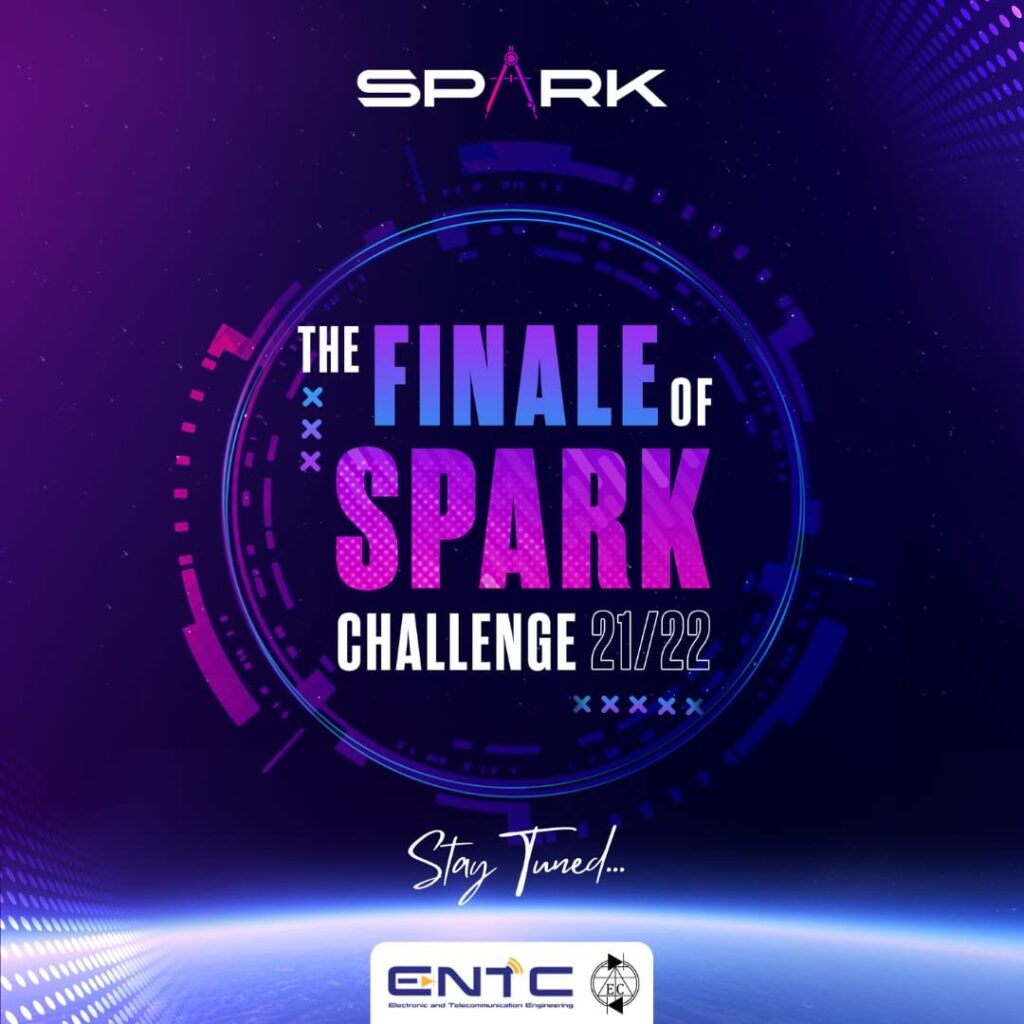
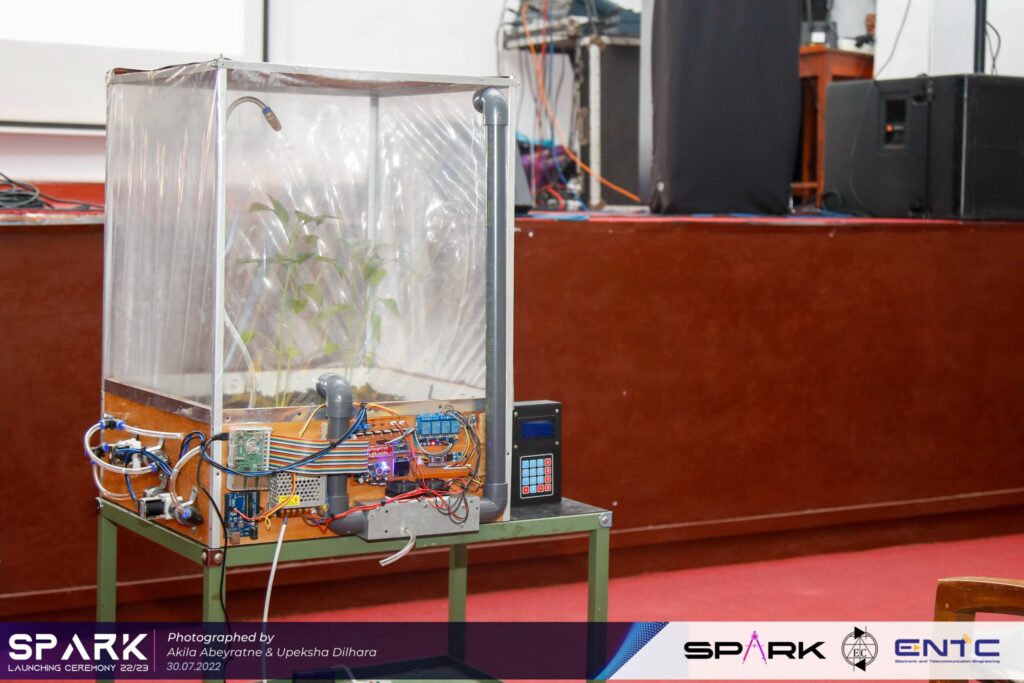
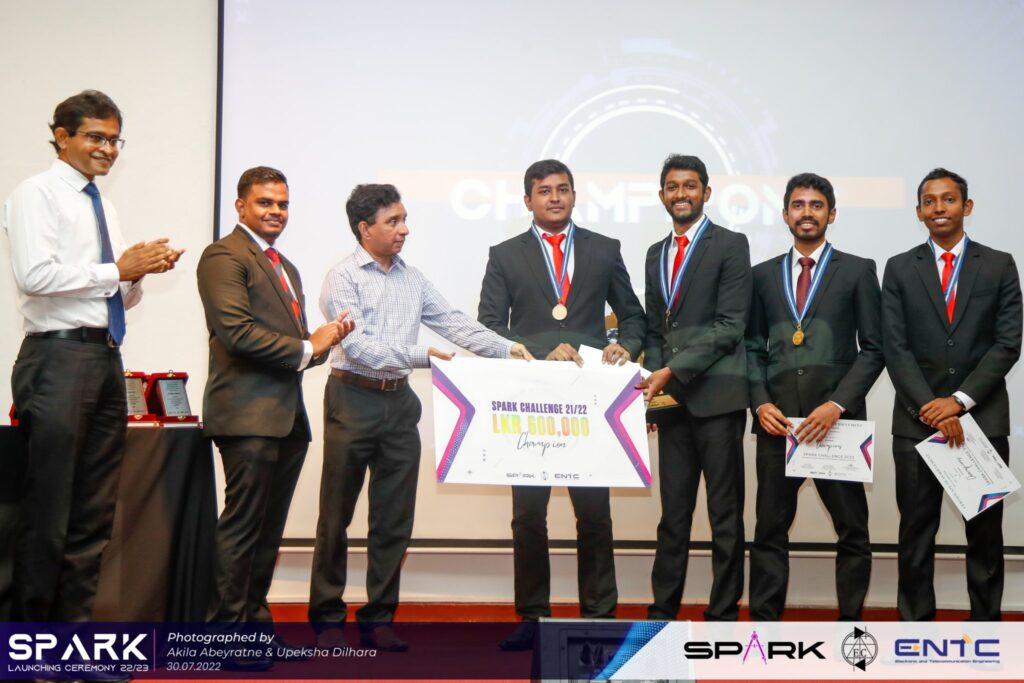
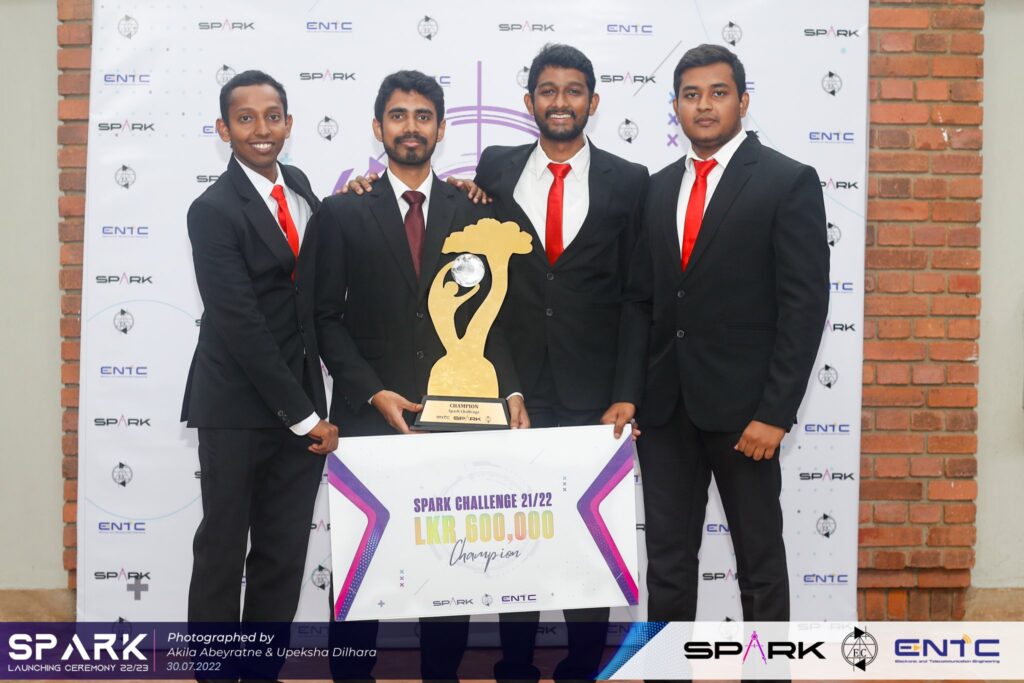
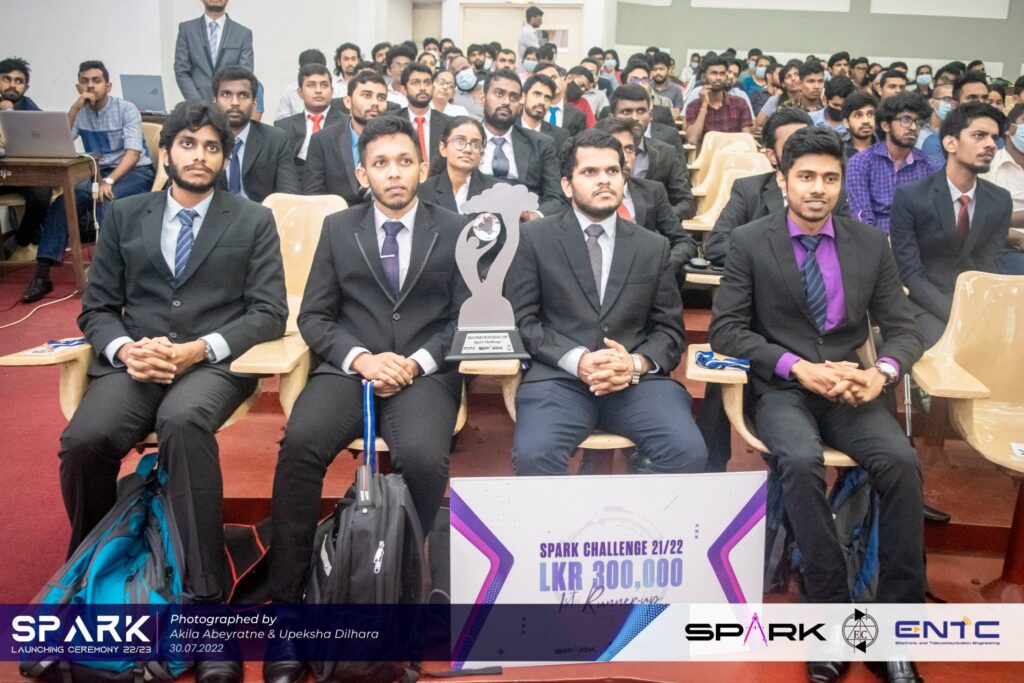
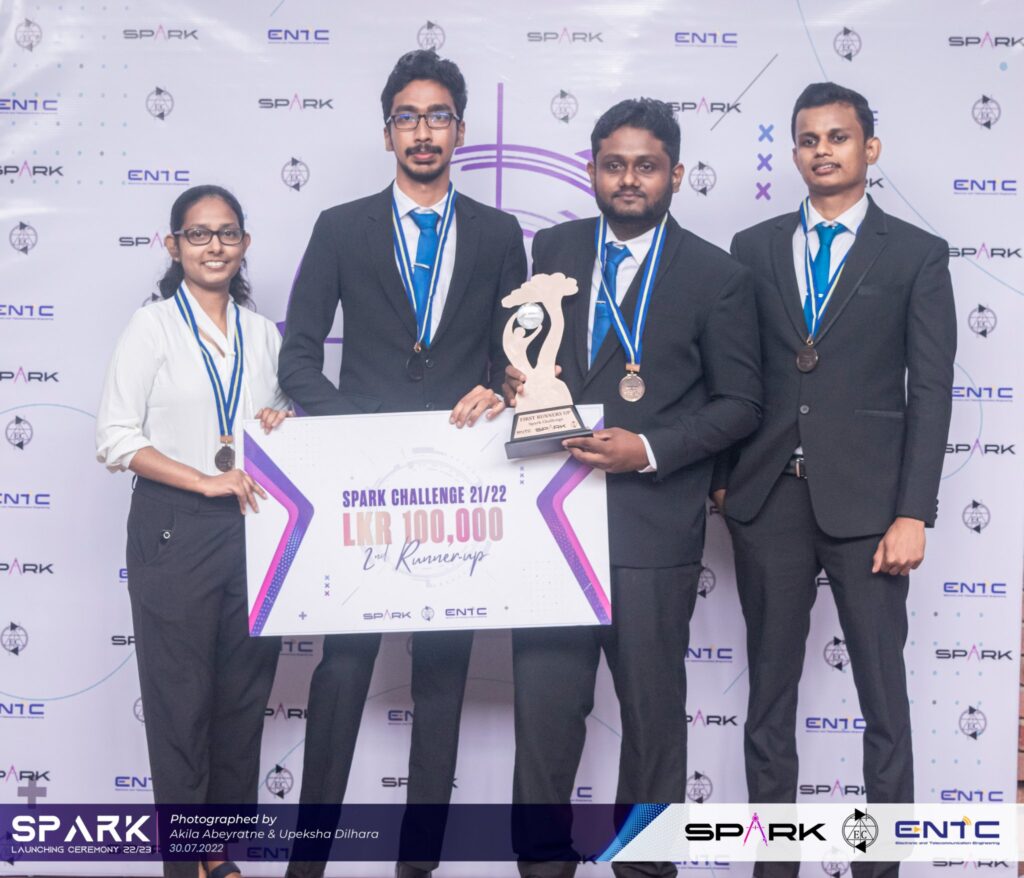
Team University of Moratuwa Selected as Finalists in the IEEE International Future Energy Challenge 2022
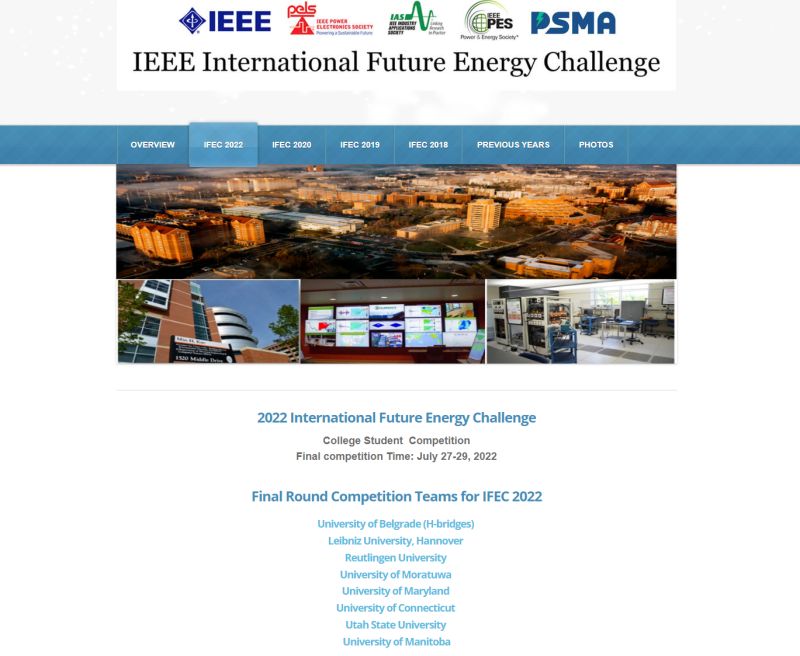
A team of undergraduates from the Dept. of Electronic and Telecommunication Engineering and Dept. of Electrical Engineering at the University of Moratuwa has been selected for the Grand Finals of the IEEE International Future Energy Challenge 2022 for the first time in Sri Lanka. This is a prestigious power electronics competition organized by the Institute of Electrical and Electronics Engineers (IEEE) and sponsored by the IEEE Power Electronics Society, IEEE Industry Application Society, IEEE Power and Energy Society and Power Source Manufacturers’ Association.
The team advisors:
Prof. Udayanga Hemapala – Head Department of Electrical Engineering
Dr. Subdoha Charles – Senior Lecturer at the Department of Electronic and Telecommunication Engineering
Mr. Thilina Ambagahawaththa – Lecturer at the Department of Electronic and Telecommunication Engineering
Mr. Iresh Jayawardana – Graduate of the Department of Electronic and Telecommunication Engineering
The team members from the Department of Electronic and Telecommunication Engineering:
Pahan Mendis – Team Leader
Pamuditha Somarathne
Punsara Mahawela
Ransara Wijitharathna
Dineth Mudalige
Chathuni Wijegunawardana
Hiruni Wijewardena
Nikeshi Kumarasinghe
Limalka Sadith
Supun Kuruppu
Biyon Fernando
The team members from the Department of Electrical Engineering:
Nawanjana Yesith
Geshan Sudasinghe
For this competition, the team designed a smart efficient and light microgrid inverter that converts DC power from a solar panel into AC. Since 2010, solar costs have declined 70% to 80% in the world, making solar one of the most economical ways for energy generation. However, integrating renewable and distributed energy resources, such as photovoltaics (PV) and energy storage devices, into the electrical applications requires advanced power electronics, or smart inverters, that provide efficient and reliable power management. The team target to achieve an efficiency greater than 95% and a bulk manufacturing cost less than $200 in their inverter.
The team progressed through the initial selection round where they submitted their proposal for the inverter that caters the set of given specifications. During the semi-final round, 13 teams from prestigious universities in the world demonstrated their hardware design of the proposed inverter. Our team from University of Moratuwa, along with 7 other teams from Europe, Canada, and America, have been selected for the grand finals based on the technical quality of the design and the progress of hardware implementation demonstrated in the semi-final round. The final competition will be held between 27th-29th of July 2022 at University of Tennessee, Knoxville, USA.
The complete hardware prototype of the inverter will be tested for its performance in front of judges and industry experts at the grand finals. A group of students representing the Team UoM is planning to visit the USA with the designed inverter for this final competition.
Read MoreResearch paper acceptance at IEEE/CVF WACV 2022
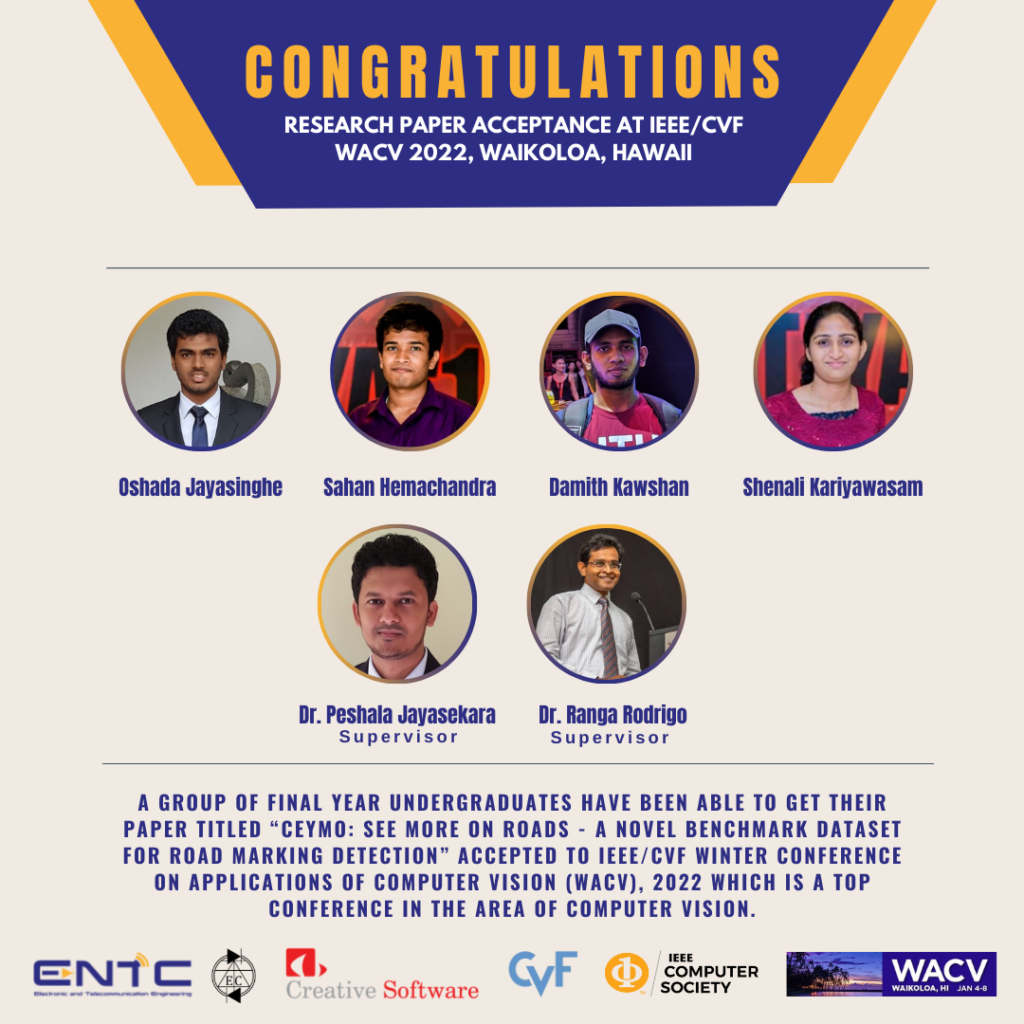
A research paper titled “CeyMo: See More on Roads – A Novel Benchmark Dataset for Road Marking Detection” has been accepted to the IEEE/CVF Winter Conference on Applications of Computer Vision (WACV), 2022. The research was conducted by Oshada Jayasinghe, Sahan Hemachandra, Damith Anhettigama, and Shenali Kariyawasam under the supervision of Dr. Peshala Jayasekara and Dr. Ranga Rodrigo.
The paper introduces a novel road marking benchmark dataset for road marking detection in advanced driver assistance systems and autonomous vehicles. Though understanding road markings is a fundamental perception task in autonomous vehicles, the development of robust road marking detection algorithms has been a challenging task in the research community due to diverse road, illumination, and traffic scenarios. The introduced dataset covers a wide variety of urban, sub-urban, and rural road scenarios with diverse illumination and weather conditions. The multiple annotation formats and the clear evaluation metrics with the evaluation script will promote novel road marking detection algorithms and direct comparison of them. Furthermore, the authors evaluate the approaches of utilizing instance segmentation-based and object detection-based neural network architectures for the road marking detection task, which will facilitate future research on road marking detection in challenging environments.
WACV is a top international conference in the field of computer vision and pattern recognition organized annually by the IEEE Computer Society and the Computer Vision Foundation. WACV 2022 will be held from 4th to 8th of January 2022 in Waikoloa, Hawaii, USA. This research was carried out as a final year project at the Department of Electronic and Telecommunication Engineering (ENTC), University of Moratuwa in collaboration with Creative Software Pvt. Ltd.

